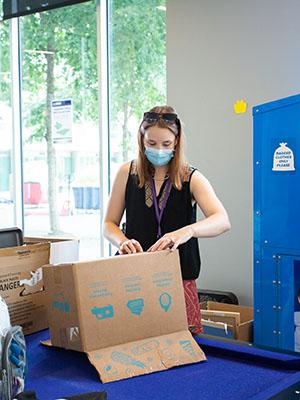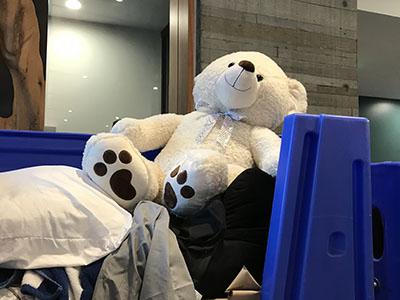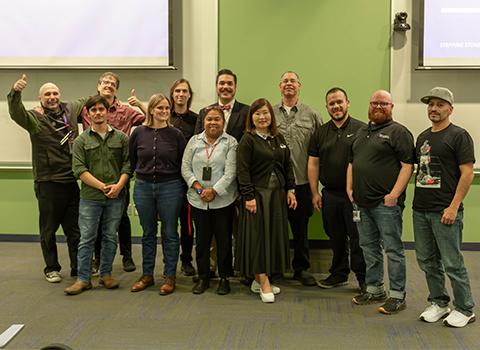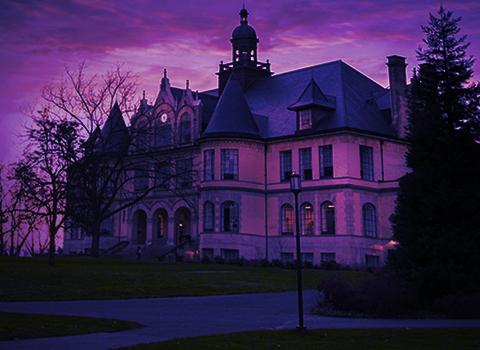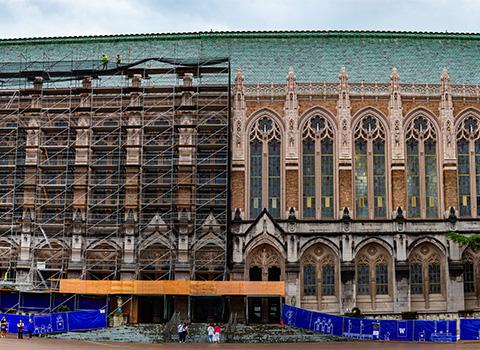Student discards help the local community

Amid the scramble to move out of the residence halls every June, waste reduction may be not at the top of most students’ priorities. That’s where UW Recycling steps in, helping students donate things as part of the annual Student Cleanup, Recycle and Moveout (SCRAM) program. In addition to diverting waste, the event aims to prevent illegal dumping and support the local community.
Donated items go to partner organizations on and off campus, such as Northwest Center, University District Food Bank, Downtown Emergency Service Center, the UW Food Pantry and the UW School of Art’s Free Materials Library.
Students donated nearly 15 tons worth of items this June, the largest SCRAM since before COVID. SCRAM, which is run in partnership with UW Housing & Food Services, is followed up by an August event called “mini-SCRAM,” targeted at the smaller population of students moving out after summer quarter.
A push to 'reuse,' not just 'recycle'
After reaching a record level of 43.52 tons in 2019, SCRAM donations plunged to 8.87 tons in 2020. Classes moved online due to the pandemic, and students trickled out of housing over several months. In 2021, most, but not all, of the dorms were occupied, and donations increased to 12.68 tons. While giving levels are far from their peak, the goals of the event have changed, said Audrey Taber, UW Recycling’s interim manager. The change is a part of the department’s shift to focus more on reuse and waste reduction, instead of maximizing recycling.
“We want students to think about reusing things and reducing waste in the first place,” Taber said. “Even if that means fewer tons of donations, it means that people are taking stuff home for reuse for future years. That's great in our book.”
Along with its traditional promotional materials publicizing SCRAM, UW Recycling created posters and posts on Instagram encouraging students to take their things home starting in 2020. They also included information about other ways students can donate their stuff before residence hall move-out, because capacity at SCRAM sites is limited.
“If you leave items at our sites, lots of them will be donated, but at the same time there are some items that will just have to go to the garbage,” Taber said. “So we’re helping students confront the reality of what's really going to happen to the items that they're trying to donate with us.”
Donations go to worthy causes on and off campus
After the event each year, partner organizations pick up the donations from campus. They’re happy to get SCRAM items because they come during the summer when giving levels are typically low. All donations contribute to a worthy cause in the local community. Northwest Center sells the clothing and textile donations they receive and uses proceeds to support its education and employment programs for children and adults with disabilities. Donations to the UW School of Art’s Free Materials Library, a new partner this year, help offset the cost of supplies for the school’s students.
Taber said she enjoys seeing what the UW’s “hopeful recyclers” donate. Most years, for example, they get a teddy bear bigger than a person. Students give enough varieties of ramen that the University District Food Bank creates a “Pop-Up Noodle Museum” the weeks after SCRAM.
Bill Lowie with the University District Food Bank said the novelty of hundreds of varieties of ramen is the “silly side” of being a SCRAM partner. “But the serious side is utilizing resources and finding homes for unwanted items,” he said. “When confronted by so much need, the food we get from SCRAM is integral in our basic premise of providing resources to customers in need.”
Downtown Emergency Service Center works to end homelessness for those at risk, particularly people living with mental illness, substance use disorders and chronic health conditions. “Without the help of programs like SCRAM, we couldn't come close to meeting the needs of this very vulnerable population,” said the center’s Don Rupp.
Whether donations support a worthy effort on or off campus, SCRAM showcases UW Recycling’s impact and how it contributes to sustainability across the UW community.
“UW Recycling is the most incredible campus partner,” said Kate Flowers, an assistant director at UW Housing & Food Services. “The UW Recycling team brings a passion and energy to SCRAM that makes it one of my favorite events of the year. Their planning and problem solving helps them adapt the event year after year. They are truly a team and are incredibly successful at diverting tons from our landfill.”
